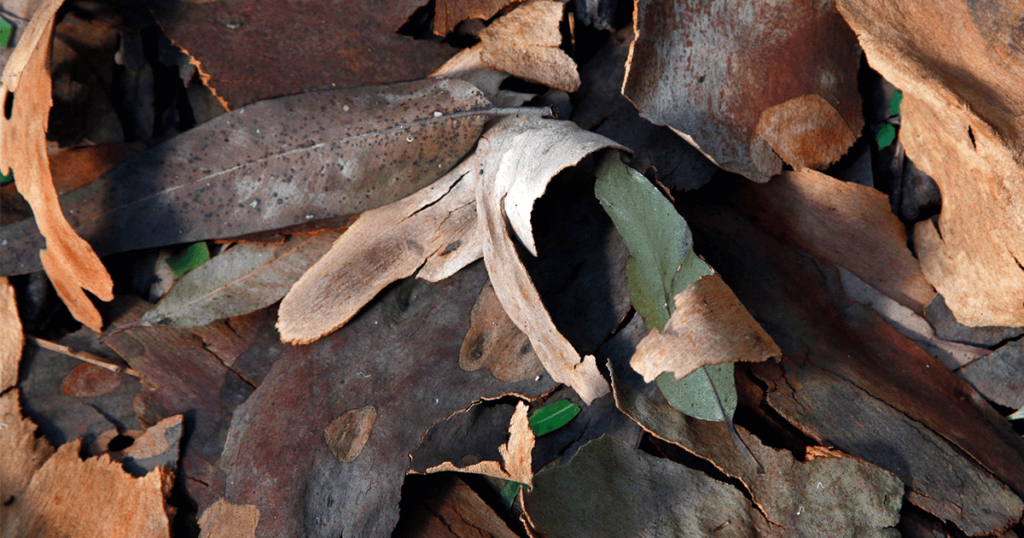
Peel, bark, skin—all of them coverings, one for an apple, one for a tree, one for people. Hide, I added, is for animals. So is pelt, especially if the fur’s still on it. My students blinked. Though you can talk about skin for an animal, too, I said.
Well, of course! they were probably thinking. The Spanish word for skin, piel, does double duty for fruit and animals, and it works for leather too, giving you a banana covered in skin, and a wallet and your belt also made of skin. Piel even works for a fur coat, un abrigo de piel, a coat of skin, to horrify the sensitive. Though why is that worse than a jacket of skin, or skin boots for that matter, which lots of people thoughtlessly wear just because it’s called leather? Weird.
But not as weird as it might be, which I realized one winter morning after a windstorm. I was on a run near the coast, the narrow road bordered on one side by a forest of eucalyptus trees and on the other by a hedge, beyond which was a field. The sea was ahead, and the wind had whirled in from the north all night, and now, strewn all across the dark asphalt road were strips and pieces of bark, not the silvery yellow green you see on the tree, but a tawny red from the undersides showing in the twisted wet remnants, some the length of an arm or leg, some as long as I am tall, and half as wide. They were tattered, these strips, as torn away skin would be, some flat, some doubled over, some half-sitting. They looked as if they could roll to their knees and crawl back into the forest. Instead, the battered strips seemed to succumb, sinking further into the collection of eucalyptus leaves and twigs amassed in damp piles, along with the leaves of a few oaks and the needles of a few pines.
I slowed on the slippery road and picked my way, stepping carefully through the debris because the strips seemed like someone’s remains. It was not bark people though, just bark, which in Spanish is not the all-duty piel you might expect but corteza, a thick and knobby word to match the thick and knobby covering of an oak or a pine, which is almost an armor. The bark of the eucalyptus is so much more skin-like, and the trees themselves were very tall and thin, swaying and sighing that morning in the lingering wind.
How must it feel, I wondered, to stand rooted at the scene of devastation, unable to run? I felt sorry for them, but they didn’t seem to mourn their stripped bark any more than a house does a missing strip of siding after a big wind. It’s not skin; it’s just bark. Shedding my idea of the mournful trees keeping watch, I ran on, saved from the spectacle of tragedy by the skin of my teeth.

